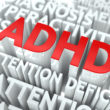Can an Adult with ADHD Get Disability Benefits?
January 3, 2022
While we usually think of ADHD (attention-deficit hyperactivity disorder) as a condition that affects children, adults, too, can suffer from ADHD. In fact, it is estimated that about 60% of those diagnosed with ADHD as a child will continue to have ADHD symptoms as an adult.
ADHD (sometimes referred to as ADD, attention deficit disorder) may affect as many as 10.5 million adults in the U.S., but it is hard to pinpoint an exact number because medical experts believe many cases go untreated and even undiagnosed.
What is known is that adults with ADHD can find it hard to follow directions, remember information, concentrate, organize tasks, and finish work on time, which means that the condition is likely to interfere with an individual’s ability to stay employed. These difficulties are even more pronounced for those who didn’t receive treatment for ADHD during their childhood.
If you are struggling with adult ADHD which prevents you from being able to hold a job, and your condition has lasted or is expected last 12 months or longer, you may qualify for Social Security Disability benefits.
To determine if you are medically eligible for disability benefits, Social Security has a set of procedures in place. These procedures are published in a handbook known as the “Blue Book,” and it includes a list of various disabling conditions known as “listings” and the medical criteria you must meet to qualify for benefits under each particular listing.
There is no “Blue Book” section for adult ADHD, and a diagnosis of ADHD alone is not sufficient in itself to qualify you for disability benefits. However, you can receive benefits for ADHD as an adult, if you’re able to prove that due to the limitations of your condition or conditions, you are unable to perform any job in the national economy, considering your age, education and past work.
To qualify, you must conclusively demonstrate that the symptoms of your impairment prevent you from sustaining full-time competitive employment on a consistent and reliable basis.
The Social Security Administration (SSA) relies on accurate and complete medical records from doctors, clinics, and hospitals to determine the severity of a physical or mental condition. Because there’s no definitive test for diagnosing ADHD, you need to have strong supporting evidence in order to get a disability claim for ADHD approved.
Possible evidence of your condition could include written documentation of your symptoms from sources such as doctors and teachers; records from past employers that document your difficulties with concentration, completing your work, or an inability to organize your assigned tasks; and a medical source statement—a form completed by a psychiatrist or therapist summarizing how limited you are physically and mentally as a result of your condition.
As an adult, the diagnosis of ADHD as a child is not as important as how the symptoms of ADHD affect your ability to work and perform daily activities. Because many adults with ADHD improve with medical treatment, Social Security will want to know about your current treatment.
If you have been prescribed medications for your condition, they will also want verification that you are currently complying with your doctor’s treatment plan. You can be turned down for benefits if you do not comply with your doctor’s treatment plan.
The SSA must also consider how your combination of health problems affects your ability to work. For example, if you have ADHD as well as depression, anxiety, or another physical or mental health impairment, it is important to obtain ongoing documentation of these medical concerns. We have often found that in cases where a client suggests ADHD is the basis for their inability to work, it is in fact another health problem that is the strongest argument for disability.
Winning a disability case for adult ADHD can be difficult, but it can be done. If you have ADHD and your condition has made it impossible for you to hold a job, contact us at Nash Disability Law for a free evaluation of your situation. Because we work on a contingency basis (we only get paid if you win your case and our fees are limited by law) we are on your side and have the same stake in your case that you do.
The Nash Disability Law attorneys focus exclusively on Social Security Disability law and can persuasively present your case in a way that Social Security can understand.


